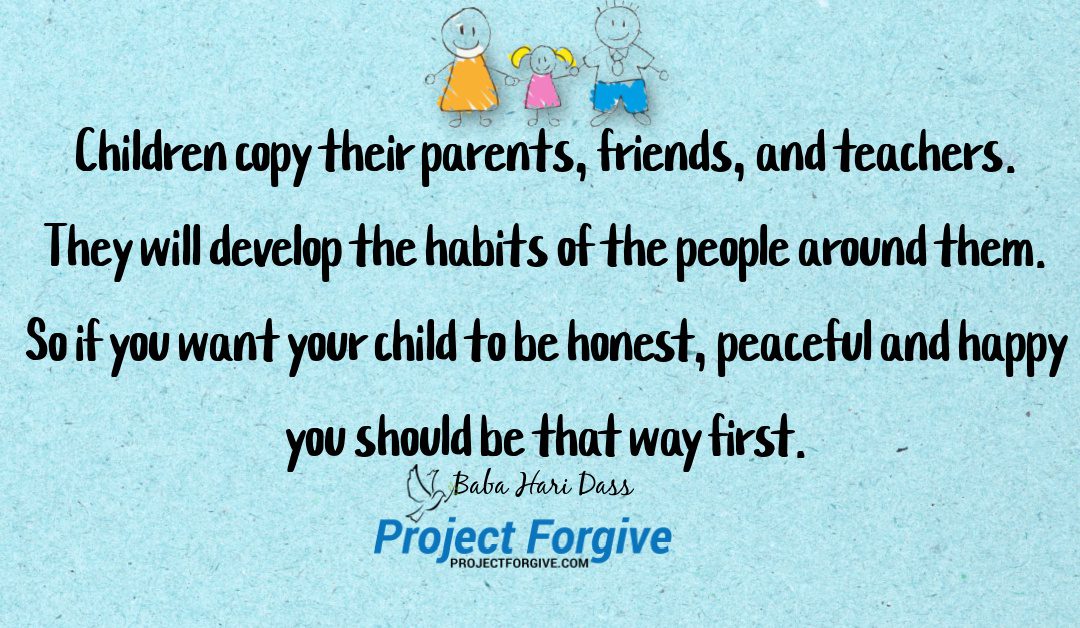As a parent you already know that raising conscious, compassionate children doesn’t just happen. It takes commitment, skill, repetition and stamina. And a lot of love and tenderness.
Research consistently shows that our day-to-day actions as adults, whether it’s parenting or grandparenting, is ultimately what kids repeat and create in their own lives. We are living, breathing role models to our children. They really do copy our actions and embrace our abilities and skills.
With that said, here’s a list of daily actions surrounding forgiveness and compassion to support you in reinforcing positive parenting or grandparenting.
1.Apologize to your child when you are wrong.
Forcing your kid to apologize to another doesn’t teach the lesson. When you show your child that you take accountability for your actions, you are modeling responsibility and maturity.
2. Admit to making a mistake.
Use verbiage that models it’s okay to make a mistake. Such as, “Oh my goodness! I made a mistake. I read the directions wrong on how to do this. Making a mistake is normal. I’m glad I caught it early.”

3. Actively and attentively listen to your child.
Kids know when you’re faking listening. We know – sometimes you can’t hear one more time how to score 100 points on a video game. But here’s the thing, listening is about worthiness. When you actively listen, you are teaching your child that they matter and that they are worthy of your attention.
4. Set boundaries in front of them so they can see what clear communication looks like.
Here are a couple of great examples:
“I’m so sorry Aunt Janet, I can’t be at your party next week. I do appreciate you asking. Perhaps another time.”
Or
“Oh, I have to say no on that one. I’ve had that book for 10 years. That’s something really important to me and I just don’t loan it out.”
5. Model gratitude.
Research shows gratitude changes perspectives, perceptions, and moods and even helps us connect to others. By verbally demonstrating your gratitude, you are teaching a habit that will impact them their entire lives.

6. Specific appreciation.
For adults, research consistently shows that the number one reason someone stays in their job is because they feel appreciated. Nope, it’s not the money, benefits or perks. It’s about being appreciated.
When you start showing appreciation to your child when they’re young, you build their self-esteem, joy and happiness. Being worthy doesn’t become an issue later in life.
When you make a conscious decision to appreciate, make sure you pick something specific and detailed.
Pay attention to how you appreciate. Instead of just saying “You’re such a good person, Sarah,” be more specific. Specific details get through to children and they can embrace the appreciation head-on.
Here are a few great examples:
“Sarah your kindness to your cousin when you were playing checkers touched my heart. Letting him go first was so kind. I love how kind you are to others. I feel proud of you.”
or
“When you picked up your toys the first time I asked, I felt respected as your mother. Thank you for listening to me with such respect.”
or
“Wow, you got your homework done before I even got home from work. I love that I can count on you to be so responsible with your schoolwork. You make me proud.”
Our time with our kids is short. By setting a positive example, we can be a positive and lasting influence in our children’s lives.
If inspired, please share.




